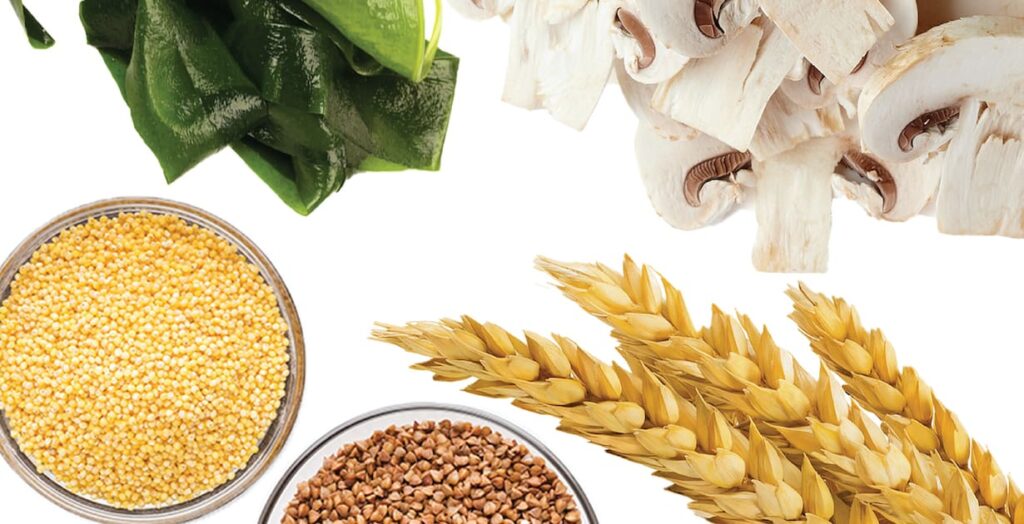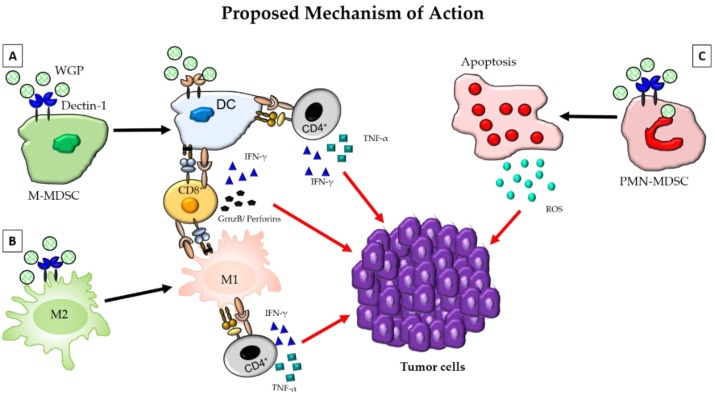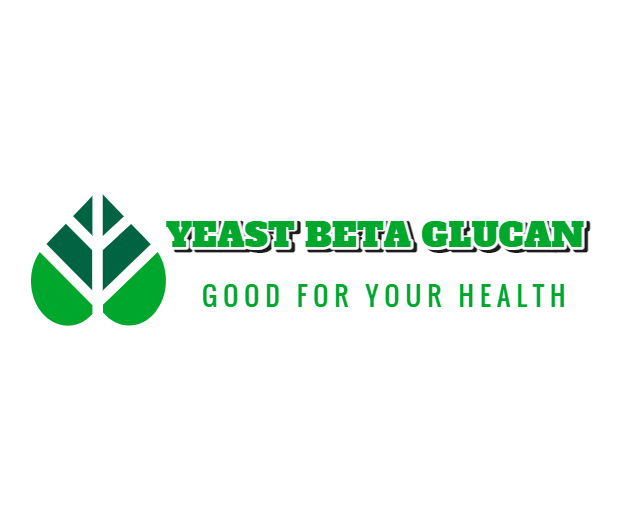Keywords: Cancer treatment by yeast beta-glucan, Beta-glucan cancer testimonials, Food enriched with beta-glucans, Baker-yeast beta-glucans, Beta-glucan side effects, Trained immunity, Adaptive immunity
Introduction
Beta (β)-glucans are the substances that are known for their immune-modulatory effects. These substances are now used more and more in various food and other dietary commodities because of their beneficial health effects. Although, some people are only aware of some of the beneficial health effects of beta-glucans. However, it will be interesting for the public to know that beta-glucans also help in fighting against cancer. Additionally, the functional role of the beta-glucans depends upon their chemical structure and from where it is derived or obtained (A. Geller et al., 2019; Vetvicka & Vetvickova, 2018).
History of beta-glucans
The history of β-glucans research in medicine dates back to 1941. At that time, these β-glucan recognize as immune modulators. Since that time, β-glucans research gets pace and become a popular topic of research against infectious and tumor diseases (Pillemer & Ecker, 1941; Vannucci et al., 2013). The discovery of critical immune receptors that modulate the effect of β-glucans was a significant breakthrough—discovering these immune receptor’s concept of trained immunity to emerging in the science of medicine. Trained immunity means cells exposed to β-glucans undergo epigenetic changes and metabolic reprogramming. So, when they contact the second stimulus, the memory-trained immune cell is activated. This phenomenon of trained immunity increases the importance of β-glucans. Hence, its use in various food and dietary commodities increases because of its tremendous health benefits (A. E. Geller et al., 2020).
Origin and sources of beta-glucan

Naturally, β-glucans is a type of soluble fiber found in yeast, fungi, mushroom, bacteria, and plants. The beta-glucan is made up of various polysaccharides or complex sugar molecules. The beta-glucans are not synthesized in the body and are taken through different food supplements. Various foods containing rich amounts of these β-glucans include yeast, fungi, mushroom, barley fiber, oats, whole grains, seaweed, and algae. In the market, these sources are available in supplements, and we can get them through dietary supplements (Vetvicka & Vetvickova, 2018).
Why are only yeast beta-glucans effective against cancer?

The β-glucans obtained from various sources have different functions. Yeast-derived β-glucans is comprised of β (1,3)-linked D-glucose with β (1,6) side chain of varying length branched structure found at various locations along with the polymer’s backbone. Although other known chemical structure of β-glucans includes β (1,3), β (1,4), and β (1,6)-linked structures are also present. However, only beaker yeast (Saccharomyces cerevisiae) contains a β (1,3)-linked D-glucose chemical structure. It has excellent immune-modulatory and stimulatory effects that differ from others and bring it into the category of biological response modifier (BRM) (A. Geller et al., 2019).
Importance of yeast beta-glucans during cancer
The body’s immune system is the first line of defense that fights against various infectious diseases. The presence of any disease-causing agent like bacteria, virus, and fungi activates the immune response. Similarly, when you have cancer immune system recognizes the abnormal cell and try to engulf and kill these cells. However, in severe cancerous disease, the immune response is not strong enough to destroy the cancer cells. Cancer usually affects the blood cell that fights during disease conditions. Thus it weakens the immune system. In these conditions usually, a biological response modifier (BRM) recommended to patients. The beta-glucan is one of this BRM that induce or enhance the immune system against the infection. BRM function as immunotherapy of immune system and influence the defense response against cancer (A. Geller et al., 2019; A. E. Geller et al., 2020).
Mechanism of action against cancer
A.Boosting the immune system against cancer
β-glucans help the immune system to slow down cancer growth and inhibit its proliferation in the body. The effect of β-glucans on cancer cells is a hot topic of research in recent times. Beta-glucans is doing wonder to trigger the immune system against cancer disease. The bet-glucans as BRM function to boost a weak immune system to fight against cancer cells. It activates the immune system in a coordinated manner to attack cancer cells. Beta-glucans links to lowering cholesterol levels, regulating blood sugar, and improving heart problems. So, beta-glucans have multiple biological effects, and this immune modulator is also effective against cancer (Chan et al., 2009).

B.Yeast beta-glucans train immunity related cells to recognize the cancer cells
Although the immune system identifies the cancer cells, antibodies can’t stop the growth of cancer cells. β-glucans tested in both human and animal cancer models for 40 years. Beta-glucans are effective against all kinds of cancer cells from breast, lungs, and gastrointestinal cancers. At this stage, β-glucans presence becomes essential as they cooperate with antibodies. Once tumor cells are recognized as foreign cells, it induces the release of the specific antibodies, which subsequently bind with tumor cells. Later, after the binding of antibodies, C3 coats the cancer cells. Intriguingly, the C3-coated cancer cells are recognized and killed by β-glucan-primed NK, macrophages, and neutrophils (A. E. Geller et al., 2020; Hong et al., 2004).
C.Priming of immune cells
Beta-glucans play an essential role in the priming of these cells for the destruction of the cancer cell. In the absence of β-glucans, the process is not that quick and result in rapid disease development. Increasing evidence shows that yeast β-glucans play a dynamic role in collaboration with antibodies that naturally happened during cancer. Furthermore, this evidence becomes more authentic when similar effects produce when antitumor antibodies add to β-glucans. The priming of immune receptors gradually develops adaptive immunity. The adaptive immune system phenomenon is of great importance as it helps to fight against various microbial pathogen. In a weak innate immune system, the adaptive immune system is activated and helps to control infection (Chaichian et al., 2020).
Multifunctional role of yeast beta-glucans
The yeast beta-glucans establish well as a strong elicitor of immune responses. Additionally, in recent time yeast β-glucans emerge as crucial regulators of homeostasis. Moreover, they help release various kinds of stress responses people are going through. Yeast β-glucans are safe to use for people of all ages, from children to the elderly. However, despite all these facts that yeast β-glucans have multiple biological functions. Like other drugs, yeast β-glucans can’t be a universal cure for cancer or other diseases.
References
Chaichian, S., Moazzami, B., Sadoughi, F., Kashani, H. H., Zaroudi, M., & Asemi, Z. (2020). Functional activities of beta-glucans in the prevention or treatment of cervical cancer. Journal of Ovarian Research, 13(1), 1–12.
Chan, G. C.-F., Chan, W. K., & Sze, D. M.-Y. (2009). The effects of β-glucan on human immune and cancer cells. Journal of Hematology & Oncology, 2(1), 25.
Geller, A. E., Ding, C., Guo, H., & Yan, J. (2020). Harnessing the power of trained immunity using yeast-derived β-glucan to prevent pancreatic cancer. The Journal of Immunology, 204 (1 Supplement), 241.3-241.3.
Geller, A., Shrestha, R., & Yan, J. (2019). Yeast-Derived β-Glucan in Cancer: Novel Uses of a Traditional Therapeutic. International Journal of Molecular Sciences, 20(15), 3618.
Hong, F., Yan, J., Baran, J. T., Allendorf, D. J., Hansen, R. D., Ostroff, G. R., Xing, P. X., Cheung, N.-K. V., & Ross, G. D. (2004). Mechanism by which orally administered beta-1,3-glucans enhance the tumoricidal activity of antitumor monoclonal antibodies in murine tumor models. Journal of Immunology (Baltimore, Md.: 1950), 173(2), 797–806.
Pillemer, L., & Ecker, E. E. (1941). Anticomplementary factor in fresh yeast. Journal of Biological Chemistry, 137(1), 139–142.
Vannucci, L., Krizan, J., Sima, P., Stakheev, D., Caja, F., Rajsiglova, L., Horak, V., & Saieh, M. (2013). Immunostimulatory properties and antitumor activities of glucans. International Journal of Oncology, 43(2), 357–364.
Vetvicka, V., & Vetvickova, J. (2018). Glucans and Cancer: Comparison of Commercially Available β-glucans – Part IV. Anticancer Research, 38(3), 1327–1333.

 English
English Nederlands
Nederlands Français
Français Deutsch
Deutsch Italiano
Italiano 日本語
日本語 Português
Português Русский
Русский Español
Español Türkçe
Türkçe Tiếng Việt
Tiếng Việt


